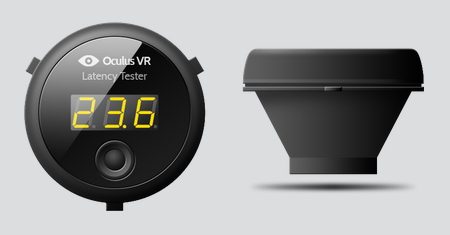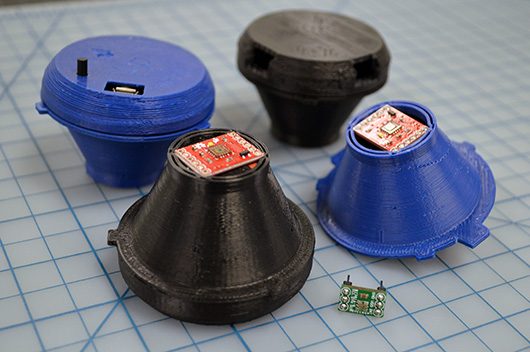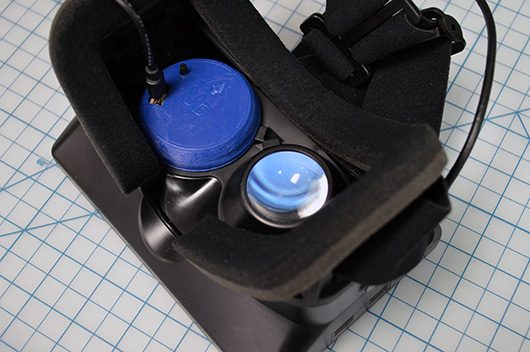Oculus VR Inc announced the Oculus Latency Tester in the company’s latest update. The device, which Oculus has been working on in the background, will allow developers to rapidly iterate during development of their virtual reality games and software by making latency testing quick and easy. The company, which expects the unit to sell for less than $100, is now taking ‘reservations’ for the Oculus Latency Tester which is sort of like a pre pre-order — it’ll secure your place in line once the pre-orders start.
An Enemy of Virtual Reality
As we recently talked about, latency is one of the biggest enemies of an immersive virtual reality experience. When you turn your head while wearing a VR headset, you expect the visuals to ‘move’ correspondingly to make you feel like you are actually looking around inside of a virtual reality world. The world will seem to move with you if there is too much latency, rather than staying still as it should.
“We define latency as the time between the movement of the player’s head and the display updating with the image for the new head orientation. The more we can minimize latency in Oculus-ready games, the more immersive and comfortable the experience will be for players,” Oculus said.
According to famed developer John Carmack, who as of late has been doing diligent VR research, says that an ideal end-to-end latency for an optimal VR experience is 20ms or less — far shorter than many existing games. Developers will need to work to have extremely responsive programs if they are to be used for virtual reality.
Carmack describes one traditional way of testing this sort of latency:
“An effective technique is to record high speed video that simultaneously captures the initiating physical motion and the eventual display update. The system latency can then be determined by single stepping the video and counting the number of video frames between the two events.”
However, this technique requires an expensive high speed camera and manual processing of the results. Someone has to watch the video frame by frame to count how many frames elapsed between the input and the corresponding action. Needless to say, this technique is time-consuming and far from ideal.
Oculus Latency Tester
Oculus hopes to empower virtual reality developers by giving them rapid access to latency info. Doing so means that they can more quickly test and tune their software for maximum latency reduction. Oculus says that the goal was to make something that was very easy to use but provided precise measurements.
The Oculus Latency Tester fits into one of the eye-cup slots on the Oculus Rift. A button atop the tester is pressed to initiate the measurement. Oculus explains further:
When the button is pressed, the device sends a message out over USB. This message is received by the SDK, which directs the game engine to composite a colored square on the current frame. A color sensor in the Latency Tester, positioned just above the screen, constantly samples the area where the square will be displayed, waiting for it to be drawn. As the colored square scans onto the LCD, this sensor watches for the light level to pass a visual threshold. When that threshold is reached, the Latency Tester reports the total elapsed time back to the computer (and for the production version, on its own 7-segment display), providing an accurate measurement of latency.
In addition to triggering a measurement from the button on the Latency Tester, the company says that developers can initiate measurements from the Oculus Rift SDK. This will allow developers to test discrete segments of the latency chain and focus on optimizing specific areas.
“For example: we can measure the latency from the last point in software that camera orientation and position are updated before rendering with just a few lines of code,” Oculus said.
Reserve / Pre-Order the Oculus Latency Tester
The company says they don’t have a firm release date for the Oculus Latency Tester, but they expect it to cost less than $100.
You can reserve / pre-order the Oculus Latency Tester right now through their website. They aren’t technically pre-ordering yet, but putting in a reservation will hold your place in line once they start shipping them out.
We’re very excited to see this tool released to Oculus Rift developers at large — it’s likely to significantly improve the virtual reality games and software that we will soon experience!









